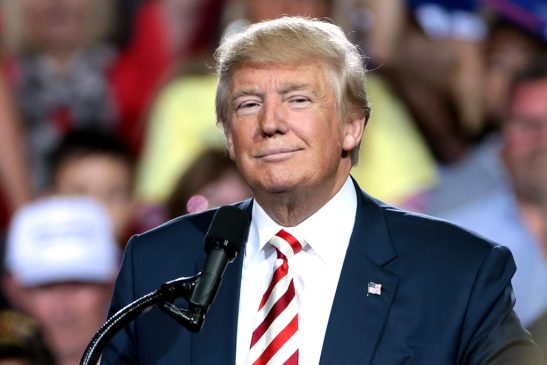Trump says that he is not a fan of cryptocurrencies, especially Bitcoin, but can he ban its transactions and operations in the United States or Congress stands in his way legally?
The United States President finally commented about the cryptocurrency industry last week on July 12 since taking office in 2016. In a Twitter tirade, he expressed his opposition about cryptos, especially Bitcoin. He apparently is also not a supporter of the soon to be launched Libra stablecoin whose whitepaper was unveiled in June 2019.
In those tweets, he published his support for the US dollar terming it as the only “real currency in the USA.” The president added that the dollar is highly reliable, dependable, and currently, it is stronger than ever. As we published earlier, the President took a dig at Bitcoin and Libra saying that they are ‘not money.’
President Trump also said that the US dollar is the most dominant currency in circulation globally and will remain that way always. He believes that cryptocurrencies can facilitate unlawful behaviors that include drug trade, human trafficking, and many other illegal activities. It is highly likely that the president would cause a BTC price crash if he banned it.
Nevertheless, the law would very much prevent the president from banning the digital asset. That matter was discussed in-depth and explained by economist and trader Alex Krueger via Twitter on July 15. At the outset, Trump’s sentiments failed to impact the crypto market. But, a subsequent breakdown over the weekend resulted in a sharp Bitcoin price drop below $10,000.
1/ Could Trump ban Bitcoin?
Thread 👇 pic.twitter.com/KeDI35GU7C
— Alex Krüger (@krugermacro) July 15, 2019
Is it Doable?
Krueger believes that theoretically, President Trump may have some triumph banning Bitcoin and the cryptocurrency market in general. He may achieve that by turning Bitcoin into an isolated and highly illiquid asset. He can target entry and exit points for institutional and retail investors.
Furthermore, Trump can go after the fiat onramps by banning all banks from servicing cryptocurrency exchanges. He may as well need the banks to keep away from servicing the exchanges unless various, practically impossible, conditions are met. Nonetheless, the president would need to convince Congress of the importance to ban Bitcoin.
Lawmakers have the power and authority to overturn the president’s demands. Whether the demands come about through an executive order or a similar emergency strategy Congress can overrule it. Thus, a ban is achievable but its probability of successfully becoming law is extremely low.
Krueger’s comments came days after mainstream media outlets highlighted that maybe Trump had unintentionally made Bitcoin a campaign issue for the 2020 presidential elections. As Forbes noted, presidential hopefuls like Andrew Yang have long opposed the idea of embracing Bitcoin at the national policy level.




